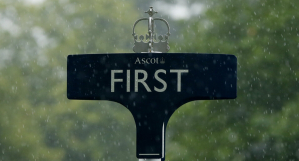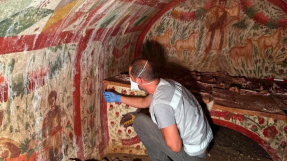
We've all done it, haven't we? Taken side-long glances at someone at church and wished we were more like them: more 'spiritual', more confident, more beautiful?
But what does the habit do to us?
Such moments of comparison inevitably create feelings of inferiority and can cause us to cover up our own inadequacies. One of the main reasons for going to church is to encourage and build up one another:
"And let us consider how we may spur one another on toward love and good deeds, not giving up meeting together, as some are in the habit of doing, but encouraging one another" (Hebrews 10:24-25).
Sadly the poison of comparison infects this process and so the encouragement we can receive from meeting with one another is cut off. I've had instances in which I've struggled severely with feelings of inadequacy within a few minutes of entering a church building. My response is to turn inwards – it feels as though my personality is literally curling in on itself – and then I either find a means of escaping conversations or I put on a big, happy smile and pretend all is okay.

It took me a long time to understand that by comparing myself with someone, I was comparing all my week's baggage with their present image – and often I did it without even speaking to them.
God gently began to talk to me and remind me that what I was seeing on the outside was just a snapshot of their life. I couldn't possibly know what their week had been like, and how they were emotionally, physically and spiritually, without asking them – and without them choosing to give me an honest answer.
They could have shouted at their kids on the way to church, sworn at their partner in an argument in the week and gossiped about their boss because they were fed up with them. They could be wrestling with God about unanswered questions or prayers or be carrying some really deep hurt that is causing them a huge amount of pain. So to base my response to people on such assumptions was really unhealthy.
Often our conversations remain on a superficial level because we are protecting ourselves. We are uncomfortable and unsure of our footing with those around us precisely because of the assumptions we've made. By doing this, we've allowed the poison of comparison to infect our relationships.
The truth is, many of us are longing to know that we are not alone in our struggles. One of the wonderful things about church is that we can meet like-minded people and learn to support one another.
We can be honest and share what difficulties we are facing and receive support – through prayer and practical help – as well as encouragement to worship God through the suffering.
I wonder if we can stop the comparisons long enough to get a bit deeper and give ourselves the chance to experience that.
Claire Musters explores this issue further in her forthcoming book, Authentic Church: learning to live mask-free.

















